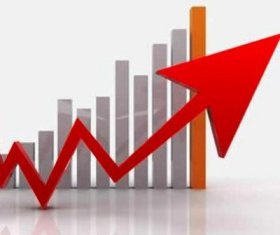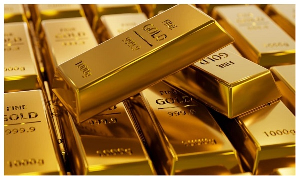The producer price inflation rate for January 2016 is 16.30 per cent, the Ghana Statistical Service, announced in Accra on Wednesday.
This indicates that, between January 2015 and January 2016 (year-on-year) the Producer Price Index (PPI) increased by 16.30 per cent, representing a 5.30 percentage point increase in producer inflation relative to the rate recorded in December 2015 of 11.00 per cent.
The month-on-month change in PPI between December and January 2016 was 3.30 per cent.
The PPI measures the average change over time in the prices received by domestic producers for the production of their goods and services.
The PPI for Ghana reports the producer price indices with reference to September 2006, the base period.
Dr Philomena Efua Nyarko, the Government Statistician, presenting the PPI for January 2016 at a press conference in Accra, said the figures were provisional and subject to revision when additional data became available, though all other indicators were final.
The release shows the producer price changes since October 2006, as well as the annual (year-on-year) and monthly inflation rates, for all industry and three major sub-sectors of industry – mining and quarry, manufacturing and utilities for the last twelve months.
The Government Statistician said the producer price inflation in the mining and quarry sub-sector decreased by 1.9 percentage points over the December 20115 rate of 4.80 per cent, to record 2.90 per cent in January, 2016.
She said manufacturing, which constituted more than two-thirds of the total industry, increased by 7.70 percentage points to record 11.40 per cent.
The utilities sub-sector recorded an inflation rate of 56.60 per cent in January 2016 and remained unchanged over the December 2015 rate.
The trends of the year-on-year inflation in ex-factory prices of goods and services was 16.30 per cent for January 2016.
Dr Nyarko said from January 2015, the producer price inflation rate consistently declined to record 19.20 per cent in March 2015; subsequently, the rate fluctuated to record 23.10 per cent in June 2015.
“The rate declined consistently from 10.20 per cent in July 2015 to 2.90 per cent in October 2015. However, it increased consistently to record 11.00 per cent in December 2015 and in January 2016, when the rate increased to record 16.30 per cent,” she said.
Dr Nyarko said during the month of January 2016, 10 out of the 16 major groups in the manufacturing sub-sector recorded inflation rates higher than the sector average of 11.40 per cent.
She said the manufacture of chemicals and chemical products recorded the highest inflation rate of 39.40 per cent while the manufacture of basic metals recorded the lowest producer price inflation rate of negative 2.30 per cent.
On petroleum price index, she said the inflation rate in the petroleum sub-sector was 4.30 per cent in January 2015; subsequently, the rate declined to record a negative 9.60 per cent in May 2015 due to the combined effect of base drift and decrease in ex-refinery prices of petroleum products.
“In August 2015, the rate further declined to 28.00 per cent, and then to negative 34.50 per cent in October 2015, as a result of decreases in the price of petroleum products.
“It, however, increased to negative 21.80 per cent in December 2015. In January 2016, the rate rose sharply to record 3.30 per cent as a result of increases in the prices of petroleum products,” she said.
In all the utility sub-sector recorded the highest year-on-year producer price inflation rate of 56.60 per cent, followed by the manufacturing sub-sector with 11.40 per cent; whilst the mining ad quarry sub-sector recorded the lowest year-on-year inflation rate of 2.90 per cent.
The monthly changes in the PPI indicated that manufacturing recorded the highest monthly change rate of 4.30 per cent, followed by the mining and quarry sub-sector with 2.30 per cent; however, the index for the utility sub-sector remained unchanged.
Business News of Thursday, 25 February 2016
Source: GNA
PPI rate hits 16.3% in January 2016
 File photo
File photo
















